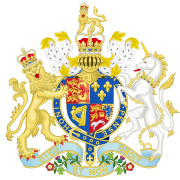| Entick v Carrington | |
|---|---|
 | |
| Court | King's Bench |
| Full case name | John Entick, (Clerk) v Nathan Carrington and Three Others |
| Decided | 2 November 1765 |
| Citations | [1765] EWHC J98 (KB), (1765) 19 Howell's State Trials 1029; 95 ER 807 |
| Court membership | |
| Judges sitting | Lord Camden, Chief Justice of the Common Pleas |
| Case opinions | |
| Camden CJ | |
Entick v Carrington [1765] EWHC KB J98 is a leading case in English law and UK constitutional law establishing the civil liberties of individuals and limiting the scope of executive power.[1] The case has also been influential in other common law jurisdictions and was an important motivation for the Fourth Amendment to the United States Constitution. It is famous for the dictum of Lord Camden: "If it is law, it will be found in our books."[4]
- ^ Entick v Carrington [1765] EWHC J98 (KB), (1765) 19 Howell's State Trials 1029; 95 ER 807
- ^ 19 St. Tr. 1029, 1006
- ^ 2 Wils. 275, 291; 95 E. R. 807, 817.
- ^ As reported in Howell's State Trials.[2] Lord Camden's words as recorded in Mr. Serjeant Wilson's Reports were "If this is law it would be found in our books, but no such law ever existed in this country."[3]
